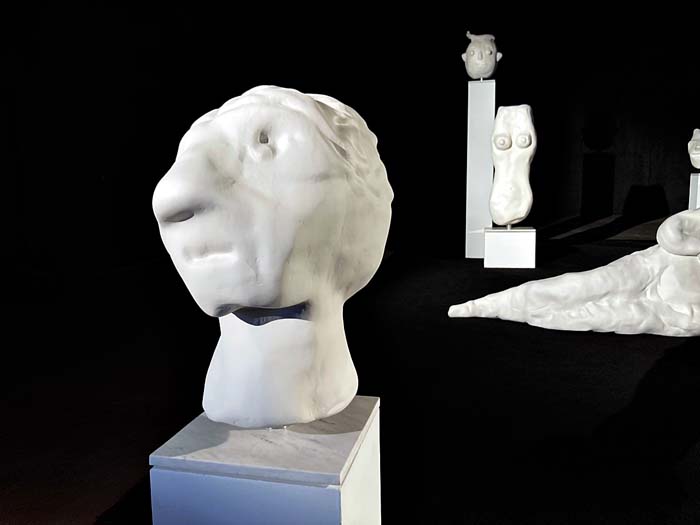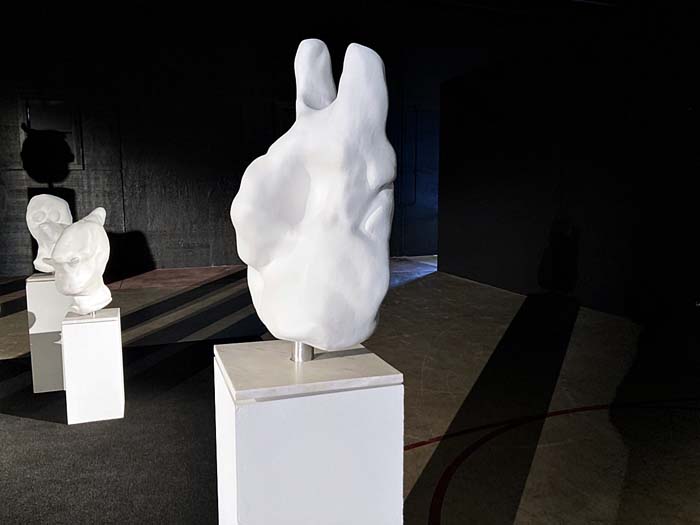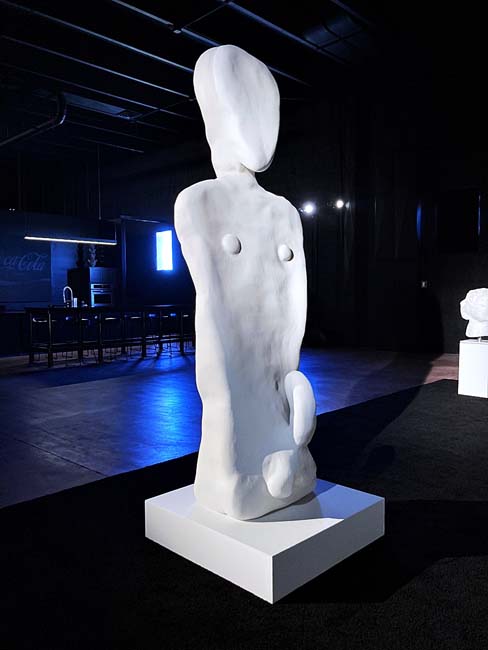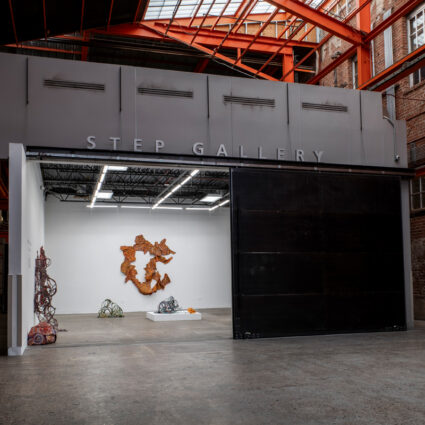Anuar Maauad’s project brings up a question born of our contemporary political context: who controls one’s body and its off-shoots?
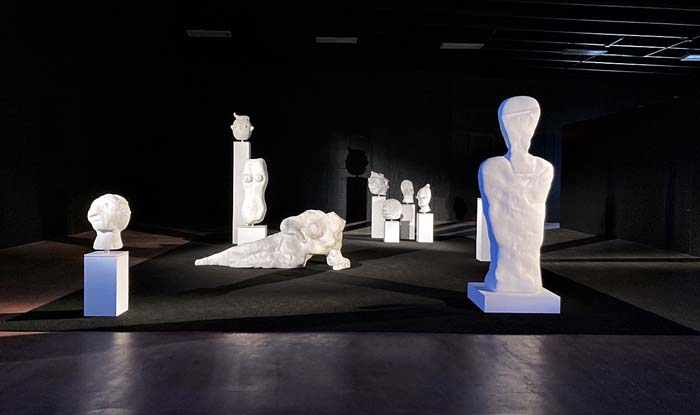
Anuar Maauad: WE ARE BODIES (The Archaeology Files)
October 7, 2022–February 10, 2023
Black Cube Headquarters, Denver
Mexico City-based artist Anuar Maauad’s new exhibition WE ARE BODIES (The Archaeology Files), on display at Black Cube Nomadic Museum’s Denver headquarters, consists of ten, medium- to large-scale white sculptures. Each artwork primarily renders the human form through a primitive or grotesque aesthetic.
The brightly lit sculptures sit upon white pedestals or plinths of various shapes and sizes. The collection of objects is centrally positioned within a cavernous warehouse painted entirely black. These light, luminescent works set against a dark space generate a high degree of visual contrast that produces a halo-like effect surrounding each piece.
In March 2022, Maauad led a workshop at Black Cube’s headquarters, inviting participants “to create small figures [of themselves] using air-dry clay.” He selected several pieces from the event, then commissioned their fabrication in Mexico using 3D-printing methods. The resulting artworks comprise the entirety of the show.
To this extent, the sculptures on display—made from thermoplastics, resin, and enamel paint—were neither modeled nor constructed by the artist. While such a process could raise questions about the authorship and ownership of an artwork, as well as the authenticity of artistic expression, these kinds of inquiries have been posed, explored, and (for the most part) answered since the nascent days of postmodernity.
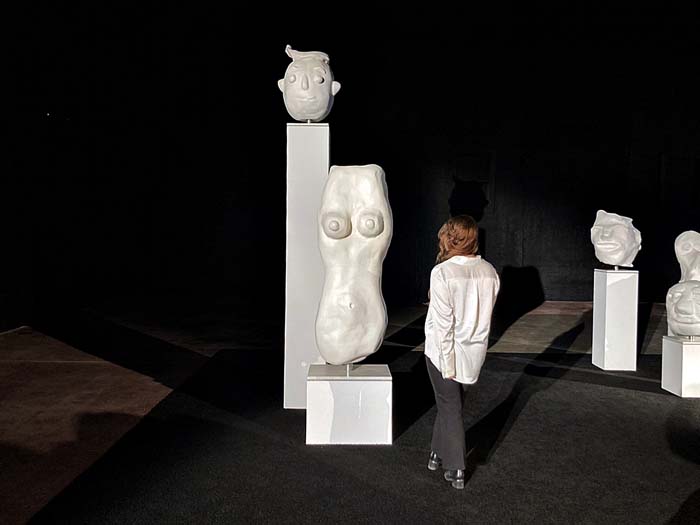
If an art historical context has rendered the question of an artwork’s authorship moot, our contemporary political context has brought another parallel question—germane to Maauad’s project—into focus: who controls one’s body and its off-shoots?
With the Supreme Court’s June 2022 decision to overturn Roe v. Wade, the United States government declared that women no longer have the constitutional right to make determinations about their own bodies and reproductive systems. Instead, our country has decided that women’s bodies are to be controlled by state legislatures, which are decidedly male, white, straight, moneyed, and old.
By taking authorship of other people’s sculptural self-portraits and contracting their reproduction according to his own specifications, Maauad enters into this fiercely contested, sociopolitical discourse currently enveloping American culture.
Black Cube’s marketing material for WE ARE BODIES notes that Maauad’s “recent work examines the relationship between political identity and social memory, and the subject of the perceptive experience.” Given this fact, one can safely assume the artist intends to challenge conservative agendas hell-bent on corporeal authoritarianism.
But there is a danger inherent to creative and critical projects that employ concepts that mirror strategies of injustice in order to undermine or dismantle them. Namely, such projects can themselves unwittingly replicate—and thus perpetuate—inequalities or draconian ideologies. Indeed, it is this fine line that WE ARE BODIES attempts to tread.
